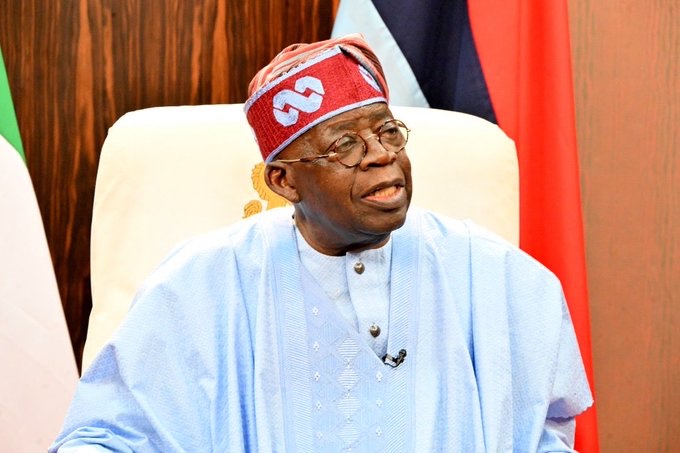
Qatari Investors Announce $300 Billion FDI Pledge to Nigeria Amid Mixed Public Reactions

Nigeria’s investment climate received a major boost as Qatari investors, led by Sheikh Abdul-Rahman Hamad N.H. Al-Thani, announced a monumental $300 billion Foreign Direct Investment (FDI) pledge to the country. The deal, which reportedly spans critical sectors including aviation, oil and gas, mining, and infrastructure, is being hailed as a massive vote of confidence in President Bola Ahmed Tinubu’s ongoing economic reforms.
An accompanying image circulating on X (formerly Twitter) shows President Tinubu dressed in traditional agbada attire, standing tall against a backdrop of national flags—a symbolic reflection of Nigeria’s renewed ambition to attract large-scale international partnerships. According to reports from The Guardian and Vanguard, the Qatari investment drive is aimed at revitalizing Nigeria’s industrial landscape while fostering long-term bilateral relations between Doha and Abuja.
Sheikh Abdul-Rahman, who heads the consortium of investors, described Nigeria as “a land of untapped potential,” expressing optimism that strategic capital inflows would accelerate the nation’s infrastructure and energy transformation. Government sources suggest that negotiations will prioritize public-private partnership frameworks to ensure transparency and shared benefits between both nations.
However, the announcement has triggered a storm of reactions on social media. While some Nigerians welcomed the news as a “game changer” capable of creating jobs and stimulating growth, others questioned the sincerity and feasibility of the pledge. Critics online labeled the investors as potential “looters” or “exploiters,” pointing to a history of inflated foreign deals that failed to translate into tangible development.
“This is another grand promise that may disappear like the previous MOUs,” one skeptical user commented. Another sarcastically wrote, “$300 billion? Let’s hope it’s not just PowerPoint billions.” Yet, supporters of the administration defended the move, arguing that Tinubu’s aggressive international diplomacy and economic recalibration are gradually restoring investor confidence.
For context, this development follows the government’s recent policy overhaul—fuel subsidy removal, currency unification, and fiscal reforms—designed to stabilize the economy and attract foreign capital. The Qatari pledge, if realized, could mark one of the largest single foreign investment commitments in Nigeria’s history, dwarfing past deals with China and the UAE.
Still, analysts warn that the ultimate impact will depend on execution, accountability, and the ability of the government to provide a secure and business-friendly environment. As Nigerians watch closely, the promised billions could either redefine the nation’s economic destiny—or become yet another chapter in its long tale of unrealized potential.
In the words of one X user, “We’ve heard figures before. This time, we want to see factories, not press releases.”

